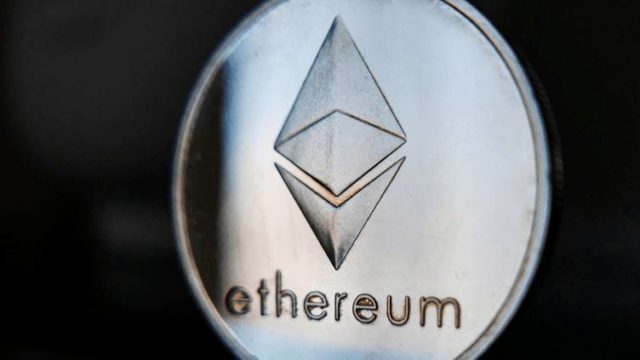- The EUR/USD gains ground as the US dollar descends due to the increase in global commercial tensions.
- Trump announced that a 30% tariff on imports from the European Union and Mexico will enter into force on August 1.
- The European Union announced that it will extend its suspension of retaliation measures against US tariffs until the beginning of August.
The EUR/USD stops its three -day loss streak, quoting around 1,1700 during Monday’s Asian hours. The pair gains ground as the US dollar (USD) loses ground due to the climb of global commercial tensions. On Saturday, US President Donald Trump announced a 30% tariff on imports from the European Union (EU) and Mexico as of August 1. He also proposed a general tariff rate of 15%-20%on other commercial partners, an increase with respect to the current base rate of 10%.
In response, the European Union announced on Sunday that it will extend its pause in retaliation measures against US tariffs until the beginning of August, hoping to reach a negotiated agreement. The president of the European Commission, Ursula von der Leyen, emphasized the strategy of “two ways” of the block, continuing the dialogue while preparing for a possible retaliation.
German Chancellor Friedrich Merz expressed a strong commitment to ensure an agreement, warning that a 30% tariff would hit “in the nucleus” of Germany’s export economy. Von der Leyen added that the EU anticoercive instrument, which allows robust countermeasures, remains out of the table for now, stating: “We have not yet reached that.”
However, the EUR/USD pair potential could be restricted, since the US dollar could recover ground amid the caution of operators on the feeling around the US Federal Reserve (Fed) to maintain stable interest rates while waiting to see the impact of tariffs on price pressures. Chicago Fed President Austan Goolsbee declared that the ongoing commercial policy under Trump’s constant tariff threats could hinder the Fed’s ability to make rates reductions that both the market in general and Trump himself want to see.
The US government registered a budget surplus of 27,000 million dollars in June, promoted by an increase in customs rights revenue, which reached a record of 27.2 billion dollars. This increase in tariff collection, which comes largely from the policies introduced during the Trump administration, contributed to a 13% increase in the total income of the budget, which amounted to 526 billion dollars. Meanwhile, federal expenditure decreased 7% to 499,000 million dollars.
EURO – FREQUENT QUESTIONS
The euro is the currency of the 19 countries of the European Union that belong to the Eurozone. It is the second most negotiated currency in the world, behind the US dollar. In 2022, it represented 31 % of all foreign exchange transactions, with an average daily business volume of more than 2.2 billion dollars a day. The EUR/USD is the most negotiated currency pair in the world, with an estimate of 30 %of all transactions, followed by the EUR/JPY (4 %), the EUR/GBP (3 %) and the EUR/AU (2 %).
The European Central Bank (ECB), based in Frankfurt (Germany), is the Eurozone reserve bank. The ECB establishes interest rates and manages monetary policy. The main mandate of the ECB is to maintain price stability, which means controlling inflation or stimulating growth. Its main tool is the rise or decrease in interest rates. Relatively high interest rates (or the expectation of higher types) usually benefit the euro and vice versa. The GOVERNMENT BOOK of the ECB makes decisions about monetary policy in meetings that are held eight times a year. The decisions are made by the directors of the National Banks of the Eurozone and six permanent members, including the president of the ECB, Christine Lagarde.
Eurozone inflation data, measured by the harmonized consumer prices index (IPCA), are an important economic indicator for the euro. If inflation increases more than expected, especially if it exceeds 2% of the ECB, it forces the ECB to rise interest rates to control it again. Relatively high interest rates compared to their counterparts usually benefit the euro, since they make the region more attractive as a place for global investors to deposit their money.
Published data measure the health of the economy and can have an impact on the euro. Indicators such as GDP, manufacturing and services PMIs, employment and consumer trust surveys can influence the direction of the single currency. A strong economy is good for the euro. Not only attracts more foreign investment, but it can encourage the ECB to raise interest rates, which will directly strengthen the euro. Otherwise, if economic data is weak, the euro is likely to fall. The economic data of the four largest economies in the euro zone (Germany, France, Italy and Spain) are especially significant, since they represent 75% of the economy of the euro area.
Another important fact that is published on the euro is the commercial balance. This indicator measures the difference between what a country earns with its exports and what you spend on imports during a given period. If a country produces highly demanded export products, its currency will gain value simply by the additional demand created by foreign buyers seeking to buy those goods. Therefore, a positive net trade balance strengthens a currency and vice versa in the case of a negative balance
Source: Fx Street
I am Joshua Winder, a senior-level journalist and editor at World Stock Market. I specialize in covering news related to the stock market and economic trends. With more than 8 years of experience in this field, I have become an expert in financial reporting.







